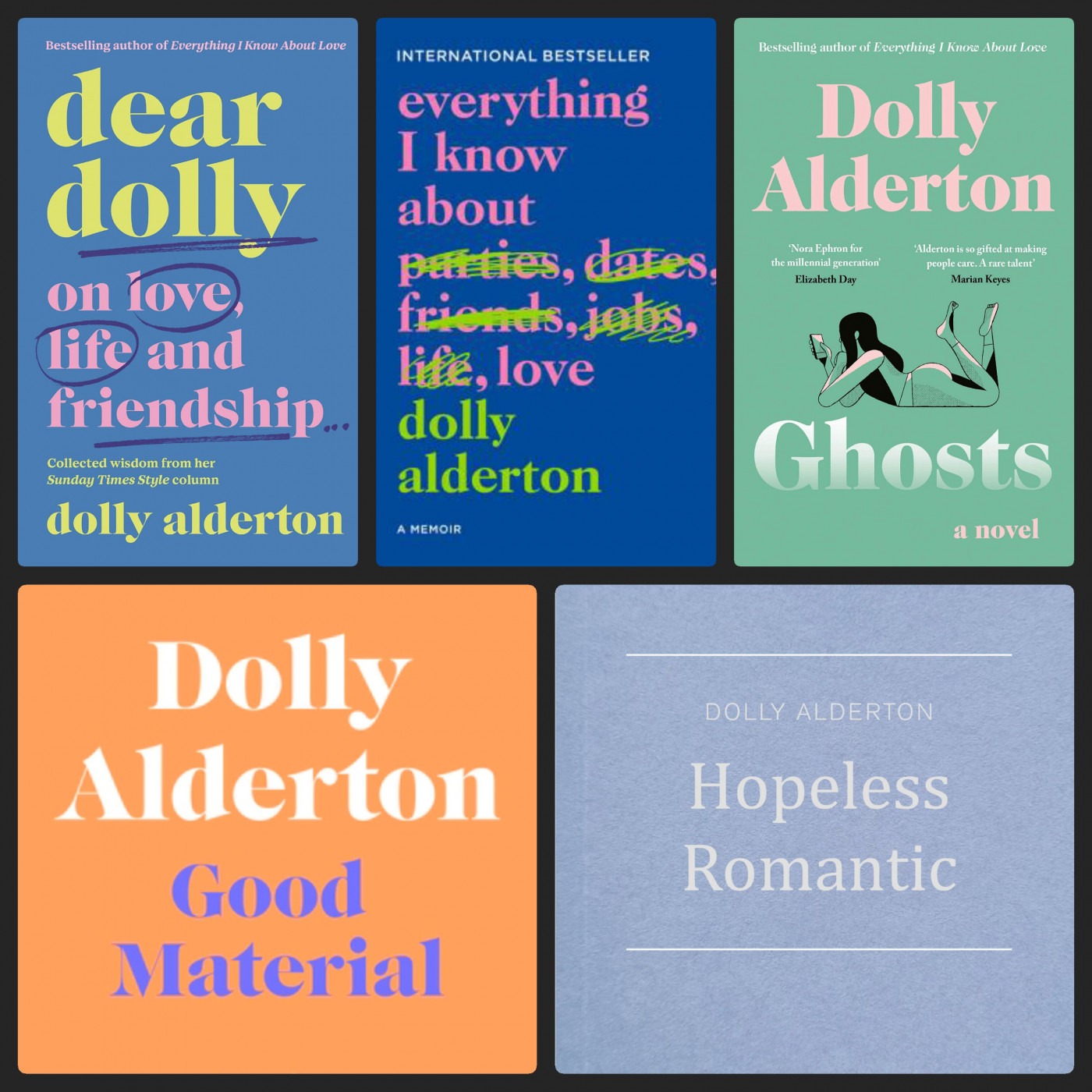Author Spotlight: Dolly Alderton
As an avid reader of all things Dolly Alderton, I was highly anticipating the release of Dear Dolly, a collection of some of her agony aunt articles from The Sunday Times. I was excited to once again be immersed in Alderton’s writing. Dear Dolly left me compelled to explore — and to attempt to articulate — why I find Alderton so fascinating.
Dolly Alderton is a journalist for The Sunday Times; her Dear Dolly agony aunt column has been running since 2020, and she previously worked as a dating columnist during the mid-2010s. Fortunately, Alderton started channelling her experiences and endearing writing style into literature with the 2018 publication of her memoir: Everything I Know About Love. She then went on to write fiction, as well as collating her agony aunt responses into a book.
What struck me most was her insistence on maximising compassion for the subjects of the letters, empathising with those who have written to her while making sure not to victimise them
The Dear Dolly collection addresses letters regarding relationships, friendships, breakups, family, and more. What struck me most was her insistence on maximising compassion for the subjects of the letters, empathising with those who have written to her while making sure not to victimise them. The collection was categorised by subject matter; every section was fun to read. However I was most drawn to her discussions of friendships. I thought it was a shame that romance dominated and didn’t provide enough room for other forms of love; however, I think this is more telling of the letters she receives. Perhaps dating is easier to talk about than the nuances of other loves.
Alderton goes on to delicately balance elements of her own stories and loved ones whilst still centering and demonstrating compassion for the people who have written to her. The introduction addresses the intentional integration of Alderton’s personal life. She admits to having inadvertently crafted a specific voice that thrives off of introspection no matter the style of writing. Her approaches to writing about her personal experiences and relationships, and how she reflects on them, are more implicit here; however, they really flourish in both her memoir and novel.
Upon every reread, I still find it such a cathartic read, and as my twenties are rapidly approaching, it resonates with me ever more
For a place to start, I recommend Everything I Know About Love. This memoir details the trials and tribulations of Alderton’s relationships during her twenties. While the reflection on the romantic relationships was really interesting, it was clear that the heart of the novel is her friendships and how they have shaped her life. The book reads as a love letter to her friends and an advocation of compassion for her younger self trying to navigate early adulthood. Upon every reread, I still find it such a cathartic read, and as my twenties are rapidly approaching, it resonates with me ever more.
Upon my second read in summer 2021, I discovered the release of Alderton’s debut novel, Ghosts. Ghosts is a piece of contemporary fiction that explores and comments on the evolution of female friendships in their thirties and the modern dating world. The story follows a year in the life of 32-year-old Nina Dean as she navigates online dating, ageing parents, and the shifts in dynamics with her friends as their lives start to diverge. I would mostly describe Ghosts as gentle in terms of its themes and their execution, which I find to be refreshing. Regardless of not being able to relate to a lot of the stories, as I am nowhere near the milestones and crises that the characters approach, I find them to be endearing and easy to empathise with. Alderton continues to demonstrate just how strongly she can intricately detail the nuances of the conflicts that arise from the potential disconnect between single friends, friends in relationships, and friends who have become parents.
The appeal of her writing style to be a compelling insight into the human condition; Alderton constantly embraces the messiness of our shared experiences, the core of her experiences and friendships feel like a collective. I welcome the honesty she provides when reflecting on her behaviour and the difficulties of trying to act upon these reflections. This introspection even manages to drive the narrative of her fiction while being entirely devoid of self-indulgence. However, I can’t help but appreciate the ways in which habits and influences bleed through. Her memoirs are littered with recipes coalesced into a novel where the protagonist writes cookbooks. Influences of Nora Ephron are everywhere (which probably somewhat influenced the intricacies of writing about food). I could go on. But instead, I will leave you to go and read Alderton for yourself, while I try to decide if my annual rereads of each book will occur now, or in autumn upon the release of the upcoming sophomore novel: Good Material.

Comments